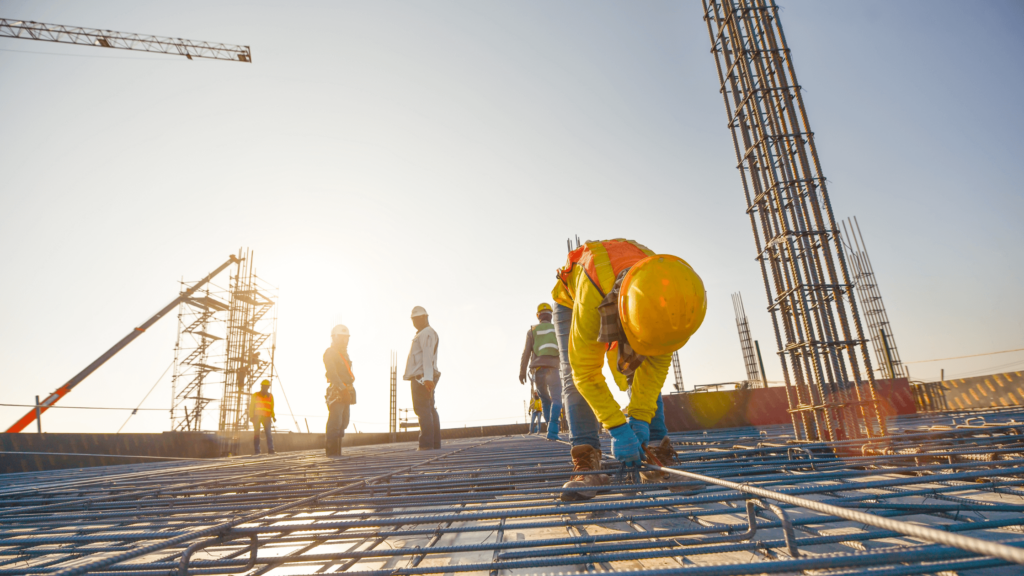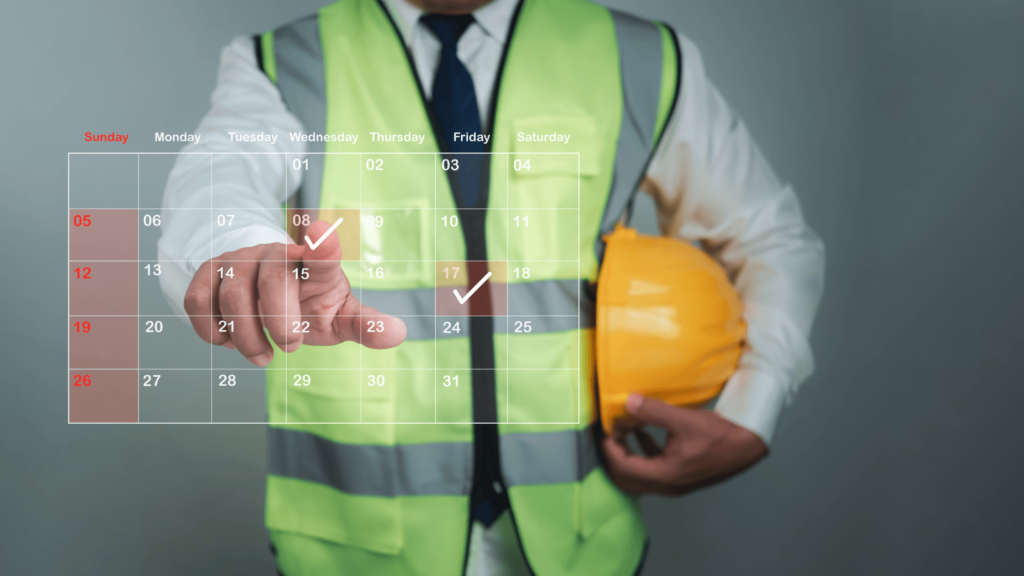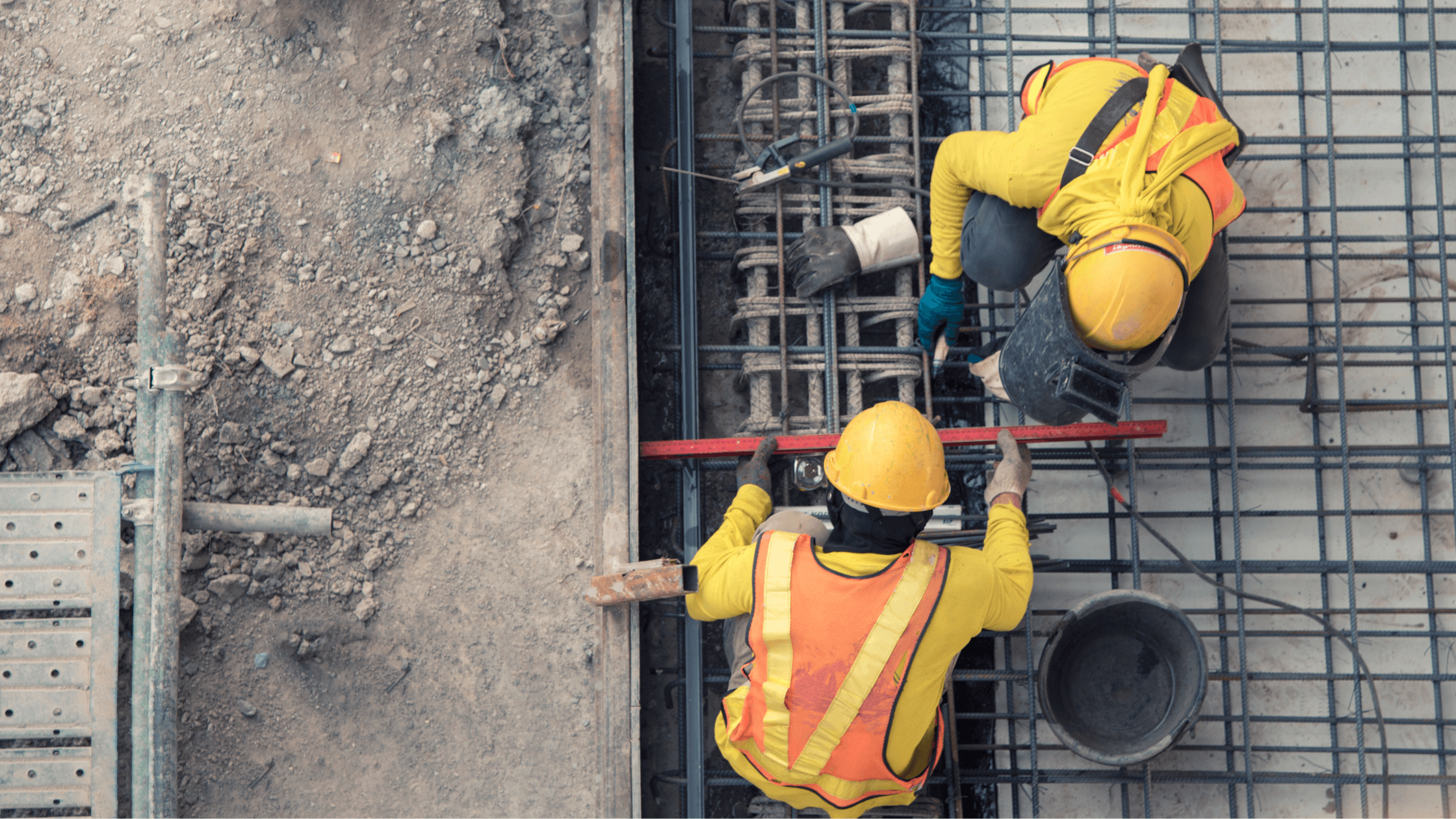Construction workers face some of the toughest physical and mental challenges on the job, with a staggering 70% of them experiencing stress, according to a recent UK study. Tight deadlines, long hours, financial pressures, and job instability are just a few stressors that take a toll on their well-being. But stress doesn’t have to be a constant companion on the job. There are practical strategies for managing it—whether it’s through time management, better communication, or relaxation techniques.
Quick look
- A recent UK study found that 70% of construction workers experience stress, affecting their well-being and job performance.
- Construction workers face high stress from long hours, tight deadlines, job instability, and finances.
- Stress is common across the industry, impacting both physical and mental health.
- Mitigating stress through time management, mental health support, and relaxation techniques can improve worker well-being.
- The construction industry must address stress to maintain a healthy, productive workforce.
UK study finds 70% of construction workers are stressed

A recent study from the University of Cambridge revealed that 70% of construction workers experience high stress levels, making it one of the most stressful industries. The research highlights how workers’ mental health is significantly impacted by pressures such as long hours, tight deadlines, and job instability. These findings reflect a growing trend in workplace stress across construction industries worldwide. In North America, stress is similarly prevalent, with other studies showing that 55-60% of construction workers report stress affecting their job performance.
The study’s findings are a call to action for the construction industry to address mental health concerns in the workforce. A stressed workforce can lead to increased absenteeism, poor productivity, and a greater likelihood of workplace injuries. This highlights the importance of creating better working environments and offering support systems to reduce stress levels.
Why is construction stressful?
Construction is a physically demanding and high-pressure industry. The nature of the work, the need for tight deadlines, financial pressures, and uncertainty about job stability all contribute to significant stress levels among workers. Here’s a closer look at the top reasons why construction workers are feeling stressed.
1. Long hours
Construction work often involves extended hours, especially when deadlines are tight. Workers regularly put in 10-12 hour shifts, and in some cases, overtime is expected. The physical demands of the job, combined with long hours, leave little time for rest or recovery, exacerbating feelings of fatigue. When workers feel like they are constantly racing against the clock, burnout is inevitable. This often leads to poor decision-making and higher accident rates.
Additionally, long hours impact workers’ home lives, leading to strain on relationships and family time. Over time, this imbalance can take a toll on mental health, contributing to increased stress levels. Stress from overwork can also diminish job satisfaction, causing workers to feel less motivated. Taking breaks and rotating shifts is a good solution, but it requires industry-wide changes to work culture and better scheduling.
2. Tight deadlines
Construction projects are often bound by strict deadlines, whether part of a larger development or tied to seasonal schedules. These time pressures can lead to stress as workers race to complete tasks quickly without sacrificing quality. Tight deadlines also make it more difficult to implement safety protocols, increasing the risk of accidents. Stress from deadlines is especially significant when workers are short-staffed, making them feel overwhelmed and stretched thin.
Meeting these deadlines is crucial, but it’s also important to consider their toll on workers’ mental health. With more projects relying on faster turnarounds, construction professionals need more resources and support to cope with this pressure. Time management, proper planning, and setting realistic expectations can help reduce the stress caused by tight deadlines.
3. Finances
Uncertainty around wages and the financial health of construction companies can create a significant amount of stress for workers. Many construction jobs are paid hourly, making income less predictable, especially if projects are delayed or paused. In addition, changes in the economy, construction material costs, and project cancellations can lead to job insecurity. Workers may also feel stress about managing their own finances, as construction tends to have fewer benefits or long-term job guarantees compared to other industries.
Stress from financial insecurity can affect mental health, causing anxiety and a sense of instability. Workers who are concerned about their income might also feel distracted, lowering job performance. Offering financial planning resources or temporary financial support could help ease these worries.
4. Job instability/seasonal work
For many construction workers, the nature of the job involves temporary or seasonal contracts, which can leave them constantly searching for new work. Job instability leads to heightened stress, particularly when the economy slows or fewer construction projects are available. This pressure makes it difficult to plan for the future and leaves workers feeling uncertain. While some workers enjoy the flexibility of seasonal work, the instability can create anxiety and stress about the future.
Employers can help by offering more consistent work opportunities or providing more transparency on job availability and timelines. Having a safety net or support system in place can help workers cope with these fluctuations.
5. Heavy physical demands
Construction work is physically demanding, which can lead to both short-term and long-term health issues. The constant physical exertion, heavy lifting, and working in harsh conditions contribute to worker fatigue, muscle strain, and injury. Stress from physical pain or the fear of injury can exacerbate mental health issues, leading to feelings of helplessness or burnout. In some cases, workers may avoid seeking help for fear of being perceived as weak or unable to perform their jobs.
Investing in proper safety gear, ensuring ergonomic work practices, and encouraging regular physical check-ups can help workers manage the physical stress of the job.
6. Lack of support systems
Another major source of stress in construction is the lack of mental health support in the workplace. Many construction workers still feel that mental health issues are stigmatized or overlooked. Without proper support networks, workers may struggle to cope with stress and anxiety, which can lead to a breakdown in overall well-being.
Employers should provide access to counseling services and mental health resources and create a work culture where workers feel comfortable discussing their struggles. Addressing mental health needs within the workplace can help prevent burnout and create a more supportive environment.
How to mitigate stress and its impact

There are multiple strategies to help reduce and manage stress in construction. Addressing stress both at work and at home can have a significant positive impact on mental health and productivity.
Time management techniques
Proper time management can alleviate the pressure caused by tight deadlines. Prioritizing tasks, breaking down larger projects into smaller manageable steps, and learning how to delegate are all essential skills. Taking regular breaks throughout the day to refresh and recharge also helps workers stay productive without overloading themselves.
Time management skills can be developed with a little practice and can improve both job satisfaction and performance.
Open communication with employers
Workers should feel empowered to speak with their employers about stressors they are experiencing. Whether it’s workload, scheduling, or safety concerns, an open line of communication can help create a solution-oriented work environment. Employers who listen to their workers’ concerns and act on them will reduce stress and foster loyalty within their teams.
Encourage regular feedback sessions or one-on-one meetings to discuss concerns and potential solutions. Strong communication is key to addressing both individual and group stressors in the workplace.
Practice relaxation techniques
Incorporating relaxation techniques into your routine is a simple but effective way to manage stress. Deep breathing, meditation, and mindfulness practices can help calm the mind and reduce anxiety. Taking a few minutes each day to center yourself can significantly improve mental clarity and reduce stress.
Bottom line
Addressing stress in the construction industry is not only crucial for the mental health of workers but also for improving overall productivity and safety on the job. As studies continue to show, stress levels are alarmingly high, and it’s time for employers to take action. By improving work-life balance, offering mental health resources, and ensuring clear communication, employers can make a real difference in combating the stress epidemic in construction.
Want to learn more about how to manage stress? Subscribe to our newsletter and follow us on social media for insights on tackling stress in construction and other industry-related topics.


